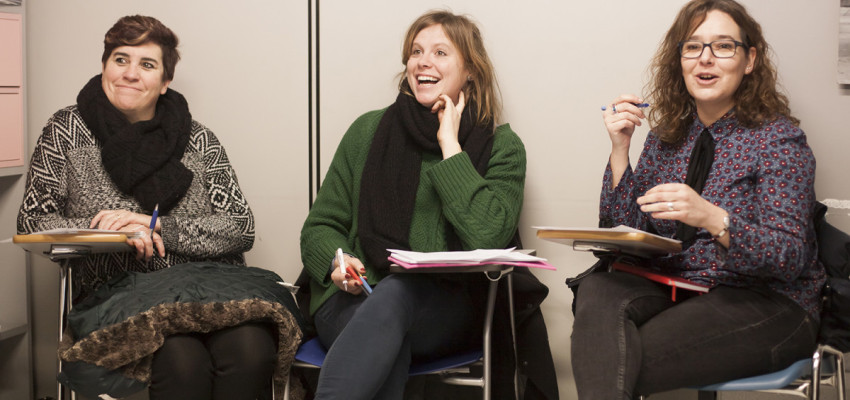Friday, April 12, 2019

As I am sure most of you are aware, when you study on a CELTA course, you learn how to teach English. But what does that actually involve and what other skills do you learn on the CELTA course. The answer is actually quite a lot.
As I’m sure you are aware the CELTA course is a 4-week intensive course (unless you opt for the part-time), which means you quickly need to learn how to manage your time. This does not only mean making time for your lesson planning and writing assignments but also making sure that you make enough time for yourself to eat and sleep! There are quite a few plates that you need to keep spinning. You will quickly learn that every minute is precious on a CELTA course and you’ll need to make the most of every last one!
This goes hand in hand with time management. As we said, time is a precious commodity on the CELTA course, so you will need to prioritise the different tasks that you need to complete. This means for example learning not to spend hours completing a written assignment due next week, when you have a lesson plan due tomorrow! This is also an important skill when you start teaching and will hopefully be something you have mastered by the end of your CELTA.
The other people on your course will most likely all be total strangers on day one, but by the end you will know each other very well indeed. Team work is an essential part of the course and most CELTA trainees form a tight-knit group, who support each other through the ups and downs that naturally occur over the course. You find that your fellow trainees are often the best source of support when you need it and that you can often provide them with support. It’s the perfect preparation for walking into the teachers’ room on your first day at your new school.
One thing you will quickly discover is that teaching straight from a course book is not particularly exciting, neither for you nor for the learners. Over the course of the course, you will discover that creative element within you to bring activities to life and make them far more engaging. This not only goes for the activities from the book, but also how you present things in your lessons. A little creativity goes a long way and will make your CELTA lessons and post-CELTA classes much more interesting for both you and your students.
This is a skill you will quickly learn on your CELTA course. It is amazing how quickly a small pile of papers becomes a mountain! There is nothing more frustrating than when your tutor asks you for a particular document and you have to spend 20 minutes sifting through your mountain of papers to find it. Make it your target from day one to keep everything well organised and buy yourself a folder or three!
As a tutor it is amazing to see the development of trainee teachers. Even the shyest of trainees can blossom into confident teachers by the end of the course. There is nothing better for boosting your confidence than standing in front of a group of learners who have just understood something you have taught them. That timid mouse on day one will be a roaring lion at the end of the CELTA!
Giving and receiving feedback is an essential part of your development as a teacher. On the CELTA course you will learn how to make the most of the feedback you receive and how to incorporate this into your future lessons. What’s more, you will also be giving feedback to your fellow trainees on their lessons. This will not only help you recognise the elements of a good lesson, but also help prepare you for giving feedback to your own students once you start teaching.
Regardless of how much you plan and prepare, you can never be sure what is going to happen in a lesson. This is something that you will quickly learn on the CELTA course. You will therefore discover the importance of spontaneity – being able to react to the unusual question your student has just asked or the strange direction the conversation is going in. Expect the unexpected!
The CELTA course is a unique opportunity to see things through the eyes of both a teacher and a student. In the morning you are the teacher, and in the afternoon, you are the student. This is an invaluable opportunity to see things from the perspective of the learners and take this into account when you are preparing your lessons. You will see what makes a lesson engaging for a student and you can then apply this when you teach your lessons.
“Don’t explain, elicit” - this is a phrase that you will probably hear frequently on your CELTA course. New teachers often feel the need to explain everything to their learners as a lecturer would. But you’d be surprised how much your students actually know already! Over the weeks you spend on the CELTA course, you will learn how to take what the learners know and elicit things from them, rather than just standing at the front and lecturing. Let the students do the work and you can fill in the gaps as necessary. Being a good teacher also means being a very good listener.
So, as you can see there is much to learn when you train to be an English teacher on a CELTA course. This is an ongoing process that will continue for the rest of your teaching career. We hope to see you on one of our future courses where you can discover all these skills and much more! If you want to find out more, please see the CELTA page of our website.